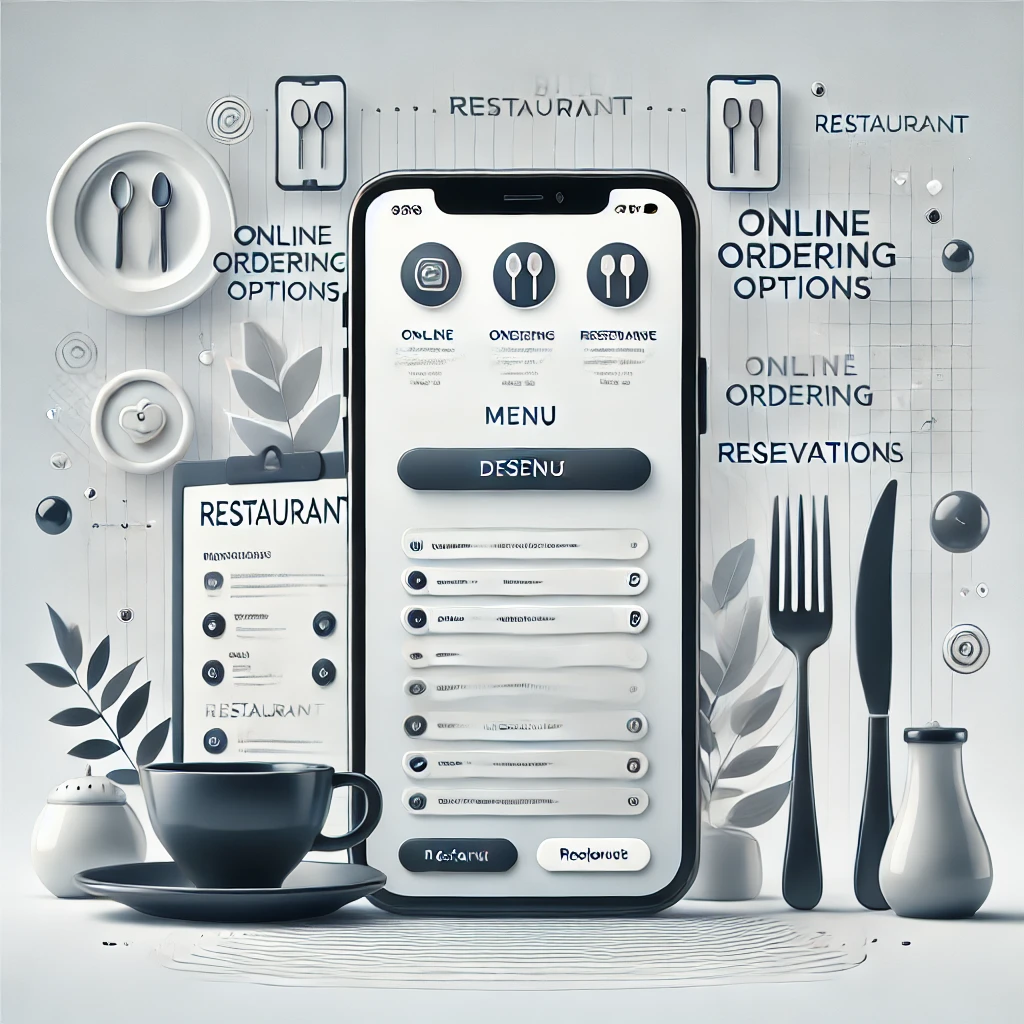Table of Contents
ToggleIntroduction
In today’s fast-paced world, having a mobile-friendly restaurant website is no longer optional. With the majority of customers searching for dining options on their smartphones, ensuring your site is responsive and user-friendly can significantly boost online reservations and takeout orders. This guide walks you through the steps to build a mobile-friendly restaurant website, from choosing the right platform to optimizing for SEO.
1. Why Your Restaurant Needs a Mobile-Friendly Website
Stay Ahead of the Competition
A responsive website enhances the customer experience and keeps you competitive in a digital-first world.
- Stat: Over 70% of customers browse restaurant menus on their mobile devices.
Improve Search Rankings
Google prioritizes mobile-friendly sites, ensuring higher rankings in search results.
Boost Online Orders
Make it easy for customers to place takeout or delivery orders directly from their smartphones.
2. Choose the Right Website Builder
Best Platforms for Restaurant Websites
- WordPress: Ideal for customization and scalability.
- Squarespace: Easy-to-use with professional templates.
- Wix: Great for beginners with drag-and-drop features.
- Shopify: Excellent for e-commerce-focused restaurants.
What to Look For
- Mobile-responsive templates.
- Integration with reservation and ordering systems.
- Easy menu management features.
3. Design a User-Friendly Layout
Focus on Essential Features
- Menu Page: Display your offerings in an easy-to-read format.
- Contact Information: Include your phone number, address, and hours.
- Online Reservations and Orders: Integrate tools like OpenTable or Toast.
Keep Navigation Simple
- Use a clear menu bar with easy-to-tap buttons.
- Limit pages to essential sections like Menu, About, Contact, and Reservations.
4. Optimize for Mobile Usability
Responsive Design
Ensure your website adjusts seamlessly to different screen sizes. Most modern platforms offer mobile-responsive templates.
Fast Load Times
- Compress images to reduce load times.
- Use tools like Google PageSpeed Insights to check your site’s speed.
Clickable Elements
- Use larger buttons for easy tapping.
- Avoid small fonts or cluttered layouts.
5. Add Online Ordering and Reservations
Integrate Order Management Systems
- Use tools like ChowNow, Toast, or GloriaFood for seamless online ordering.
- Enable delivery and takeout options.
Reservation Systems
Add tools like OpenTable or Resy to simplify table reservations.
6. Include High-Quality Visuals
Showcase Your Menu
- Use professional photos of your dishes to entice customers.
- Avoid stock images; authenticity builds trust.
Video Content
Add a short video showcasing your restaurant’s ambiance and customer experience.
7. Optimize for Local SEO
Claim Your Google My Business Listing
Ensure your restaurant appears in local search results.
- Include accurate NAP (Name, Address, Phone) details.
- Encourage customers to leave reviews.
Use Location-Specific Keywords
- Add terms like “best Italian restaurant in [city].”
- Incorporate these keywords naturally in your content.
8. Add Social Media Integration
Embed Social Links
Include buttons for platforms like Instagram, Facebook, and TikTok to connect with customers.
Live Feeds
Add your Instagram feed to your homepage to keep content fresh.
9. Test and Launch Your Website
Pre-Launch Checklist
- Test your website on different devices (smartphones, tablets, desktops).
- Ensure all links and forms are functional.
- Proofread all text for errors.
Launch and Promote
- Announce your new site on social media.
- Offer discounts for customers who place orders through the website.
Conclusion
Building a mobile-friendly restaurant website is essential for attracting and retaining customers in today’s digital age. By choosing the right tools, focusing on usability, and optimizing for mobile and local SEO, you can create a site that drives traffic, boosts orders, and enhances customer satisfaction. Start building your site today and give your restaurant the online presence it deserves.
Relevant FAQs
How much does it cost to build a mobile-friendly restaurant website?
The cost varies depending on the platform and features, ranging from $200 to $5,000 for professional designs.
Can I build a restaurant website without coding skills?
Yes, platforms like Wix, Squarespace, and WordPress offer user-friendly tools for beginners.
What features should a restaurant website include?
Key features include an online menu, reservation system, contact details, and online ordering options.
How can I improve my restaurant website’s SEO?
Focus on local SEO strategies, including location-specific keywords and Google My Business optimization.
Is it necessary to include online ordering?
Yes, offering online ordering enhances convenience for customers and boosts sales.



